
On April 7th, the 60th lecture of the BNU Legal Practice Lecture Series, titled "Theoretical and Practical Issues Concerning the Modernization of Criminal Prosecution Work," was successfully held in the lecture hall of the Electronic Building of Beijing Normal University. The lecture was delivered by Luo Qingdong, Deputy Director of the First Prosecutor’s Office at the Supreme People’s Procuratorate and a first-level senior prosecutor. The event was moderated by Professor Liang Yingxiu, Dean of the Law School of Beijing Normal University. Joining the discourse as panelists were Professors Yin Jianfeng and He Ting, both a Vice Dean of the Law School of Beijing Normal University. The lecture drew an engaged audience of over 130 participants, including Associate Professor Shang Haowen from the Law School, as well as a diverse mix of teachers and students.
Prior to the commencement of the lecture, Dean Liang Yingxiu extended a heartfelt welcome to Deputy Director Luo Qingdong on behalf of the Beijing Normal University Law School. Dean Liang also provided an insightful overview of the "Procuratorial Practice" course. Emphasizing the Law School's long-standing commitment to a pedagogical approach that balances theory with practice, Dean Liang explained that the primary objective of offering "Procuratorial Practice" is to enrich students' comprehension of real-world legal procedures by seamlessly blending academic theory with practical application. This approach is designed to inform theoretical research and elevate the caliber of legal education. Dean Liang highlighted that the invitation to Deputy Director Luo Qingdong to speak was a unique and invaluable opportunity for the students. She expressed hope that the students would grasp this precious chance to engage in meaningful dialogue with Deputy Director Luo, thereby deepening their insight into the modernization of China's criminal prosecution efforts. Finally, Dean Liang conveyed his wish for a successful and enlightening lecture.
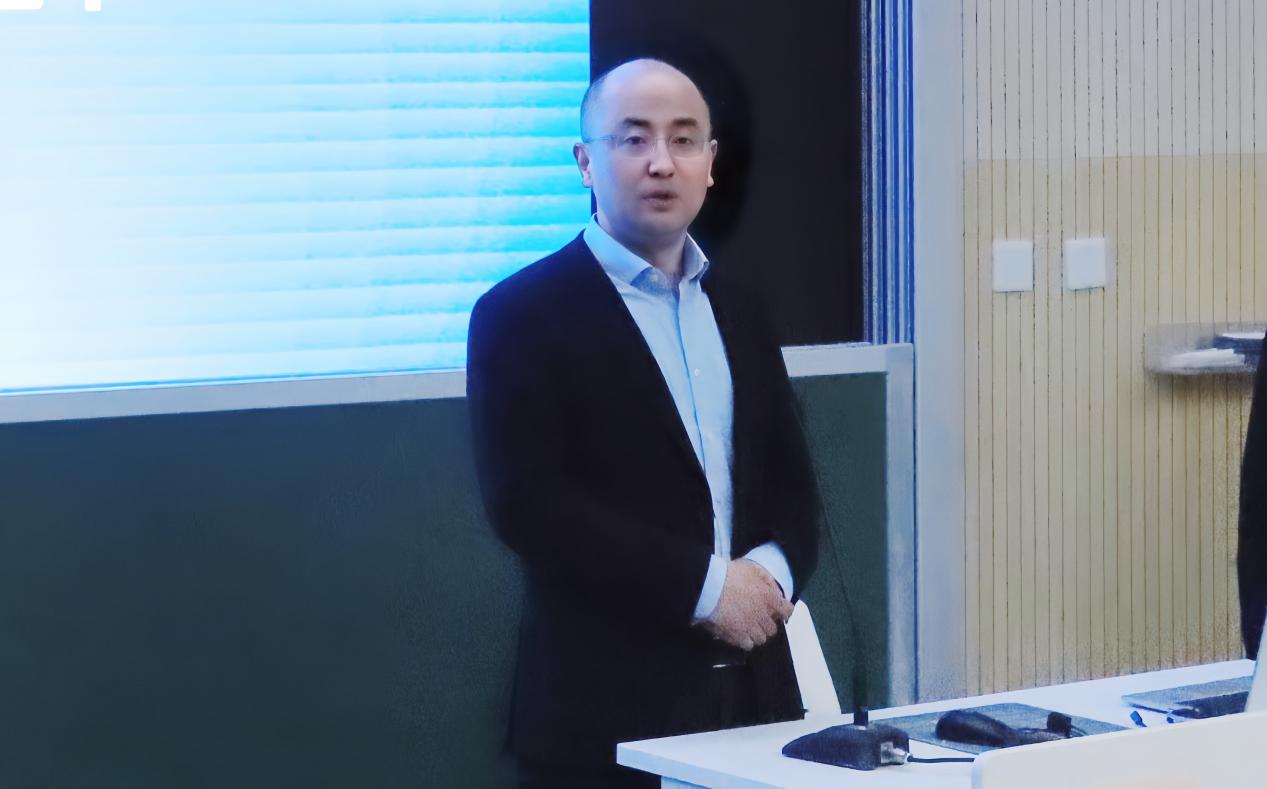
The lecture commenced formally thereafter. Deputy Director Luo Qingdong centered his presentation on "Theoretical and Practical Issues in the Modernization of Criminal Prosecution," drawing from the historical context of criminal prosecution in the contemporary era, the comprehensive strategy for modernizing criminal prosecution, and the critical research areas essential for this modernization. He provided an in-depth exposition of the theoretical framework and concrete practices advancing the modernization of criminal prosecution in China to the assembled faculty and students. Deputy Director Luo highlighted that the current phase of development for the Party's procuratorial work is unparalleled, with the people's procuratorial work achieving significant strides. The criminal prosecution apparatus has undergone substantial reforms, refining and enhancing the operational mechanisms of criminal prosecution authority, and delivering remarkable outcomes in the realms of conceptual innovation, institutional reconfiguration, and operational reform. At present, the modernization of procuratorial work has become a new topic. The Supreme Procuratorial Party Group has proposed to support and serve Chinese path to modernization with the modernization of procuratorial work. The next five years are a critical period for the start of comprehensively promoting the modernization of procuratorial work. Deputy Director Luo Qingdong believes that in the context of the new era, it is essential to correctly grasp the fundamental role of criminal prosecution and the role of criminal prosecutors. We must adhere to the guidance of Xi Jinping Thought on Socialism with Chinese Characteristics for a New Era and fully implement Xi Jinping's Thought on the Rule of Law. Starting with deepening the implementation of the leniency system for those who confess and plead guilty, and improving the mechanisms for investigation supervision and collaborative cooperation, we will vigorously advance the great practice of modernizing China's criminal prosecution work. Additionally, we will actively implement new requirements and initiatives. When discussing the key issues that need to be studied in the modernization of criminal prosecution work, Deputy Director Luo Qingdong, based on his own practical experience, comprehensively introduced to the teachers and students present the efforts made by the procuratorial organs in promoting the modernization of prosecution work concepts, systems, mechanisms, and capabilities, as well as the next focus of work in terms of concept cultivation and mechanism construction.
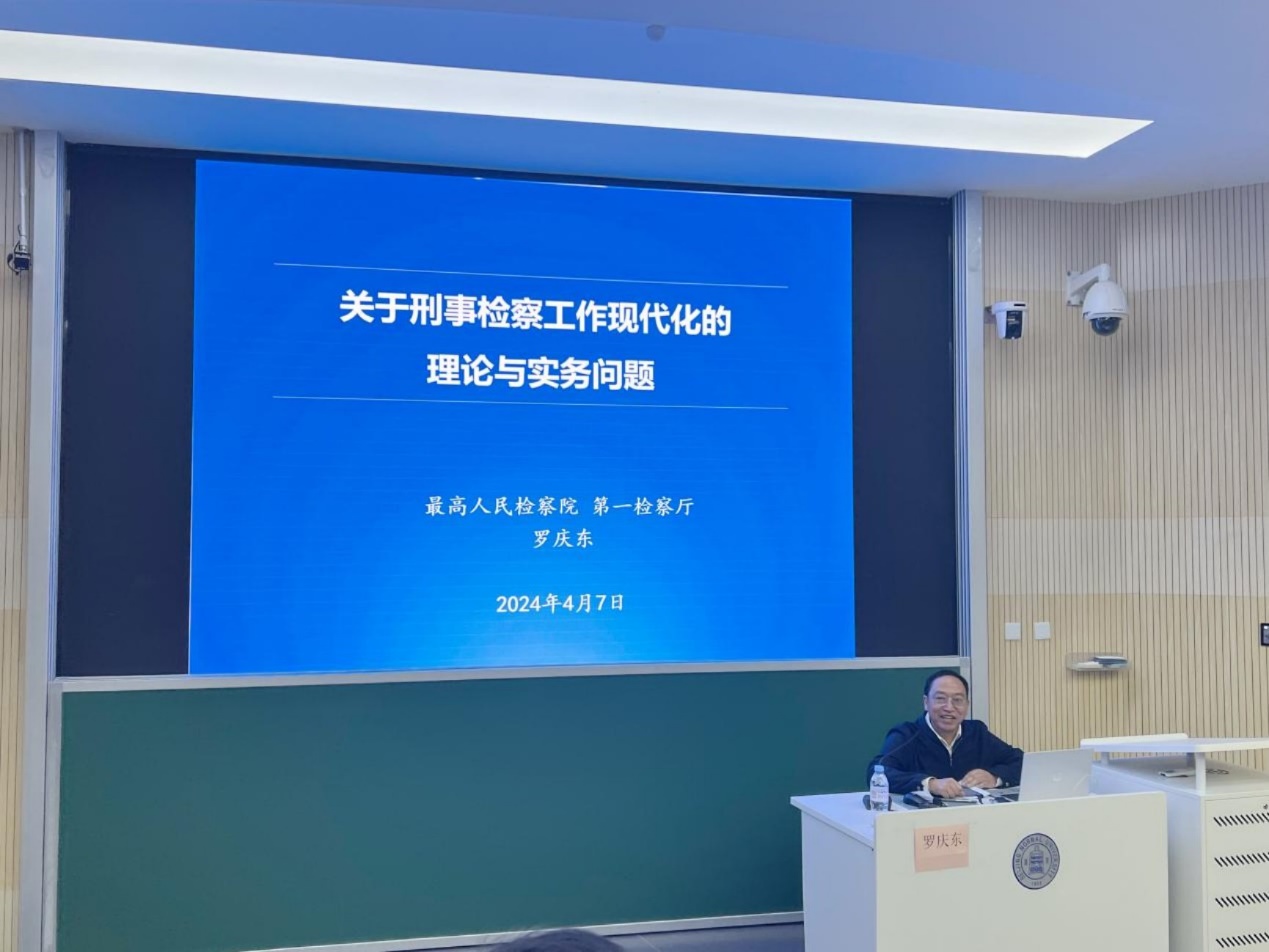
During the discussion segment, Professor Yin Jianfeng commenced by expressing his gratitude to Deputy Director Luo Qingdong for his enlightening lecture. Building upon the lecture's content, Professor Yin delved into an analysis of the theoretical postulates and practical implications within the "Opinions on Handling Criminal Cases of Drunk Dangerous Driving," adopting a dialectical approach that revolves around the twin concepts of "crime control" and "governance" within the context of criminal prosecution practices. He used this document as a case study to offer a robust endorsement of the modernization efforts in criminal prosecution work. Professor Yin Jianfeng contended that the governance of drunk driving, for instance, has sparked considerable debate regarding the application of the "sole clause" in criminal law to address drunk driving offenses and the necessity for uniform punishment of such behavior. The manner in which procuratorial organs handle drunk driving cases to ensure fairness and justice remains a topic of widespread concern. With the issuance of the "Opinions on Handling Criminal Cases of Drunk Dangerous Driving" and in light of recent prosecutorial practices, it has become evident that the procuratorial organs have successfully navigated a transition from punishment to governance in the realm of drunk driving. This exemplifies China's criminal prosecution work in upholding a balanced approach to punishment and governance, and it also serves as a solid foundation and demonstration for further advancing the modernization of criminal prosecution work.
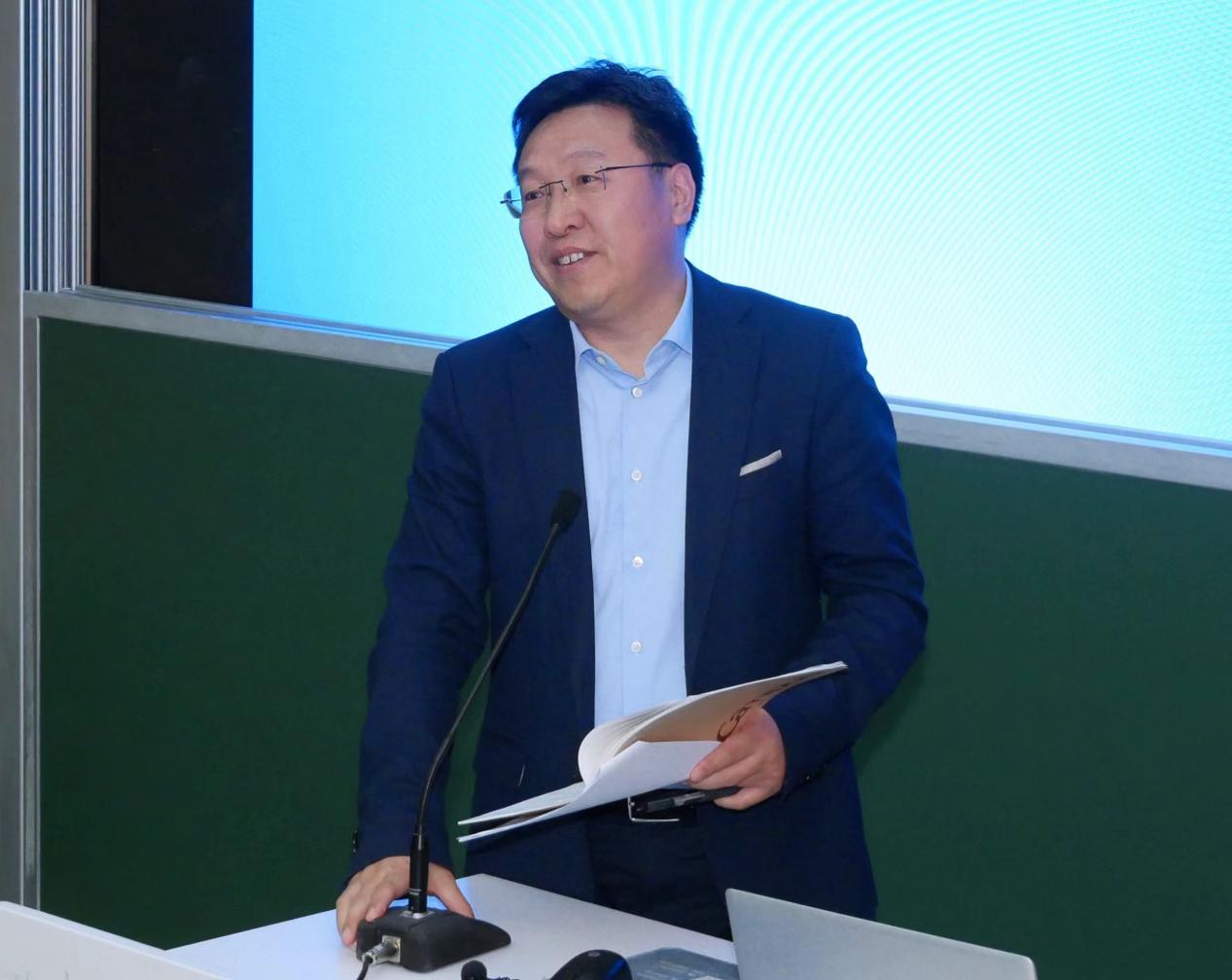
Professor He Ting also extended his heartfelt appreciation to Deputy Director Luo Qingdong for generously dedicating his leisure time to educate the students. He shared his insights from three distinct vantage points: Firstly, the unique role that procuratorial organs play within the framework of the rule of law positions a profound comprehension of the procuratorial system as a critical lens through which we can witness the modernization of China's legal system. Secondly, the elevation of political stance, the commitment to comprehensive and in-depth reform, and the proficiency in identifying and addressing practical needs are pivotal factors contributing to the remarkable achievements of China's procuratorial system reform. Moving forward, we must persist with these valuable lessons to facilitate the seamless progression of the modernization of criminal prosecution work. Thirdly, criminal prosecution stands as a cornerstone in the functions of procuratorial organs, and we harbor the aspiration that these organs will continue to forge institutional breakthroughs in advancing the reform and modernization of criminal prosecution.
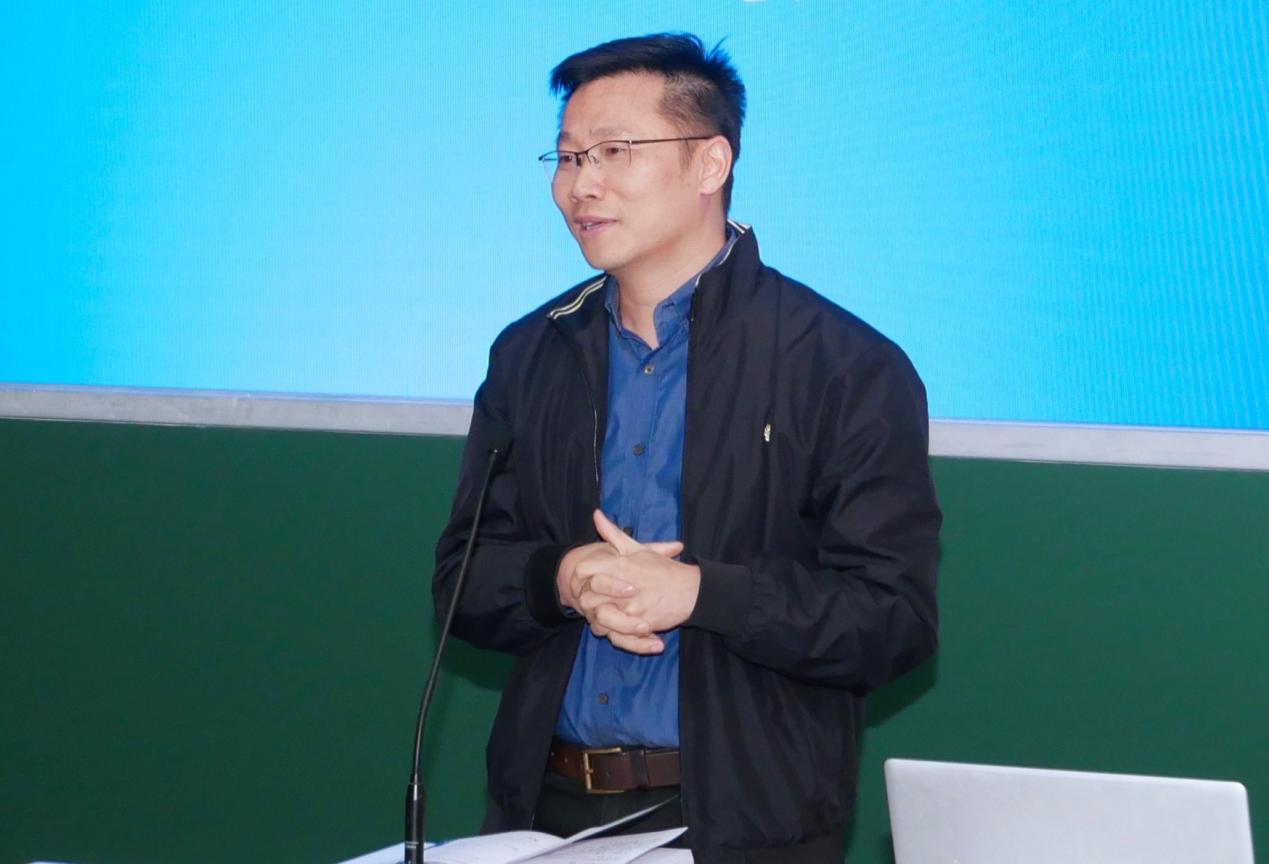
During the Q&A session, the attending students actively participated and asked questions about the positioning and development of criminal prosecution in the "Four Major Procuratorates" and the compliance reform of the involved enterprises. Deputy Director Luo Qingdong responded to the questions comprehensively and at multiple levels from the aspects of values, practical operation status, and future reform direction, enabling the attending students to have a more comprehensive and in-depth understanding of the theoretical and practical propositions of modernizing criminal prosecution work.
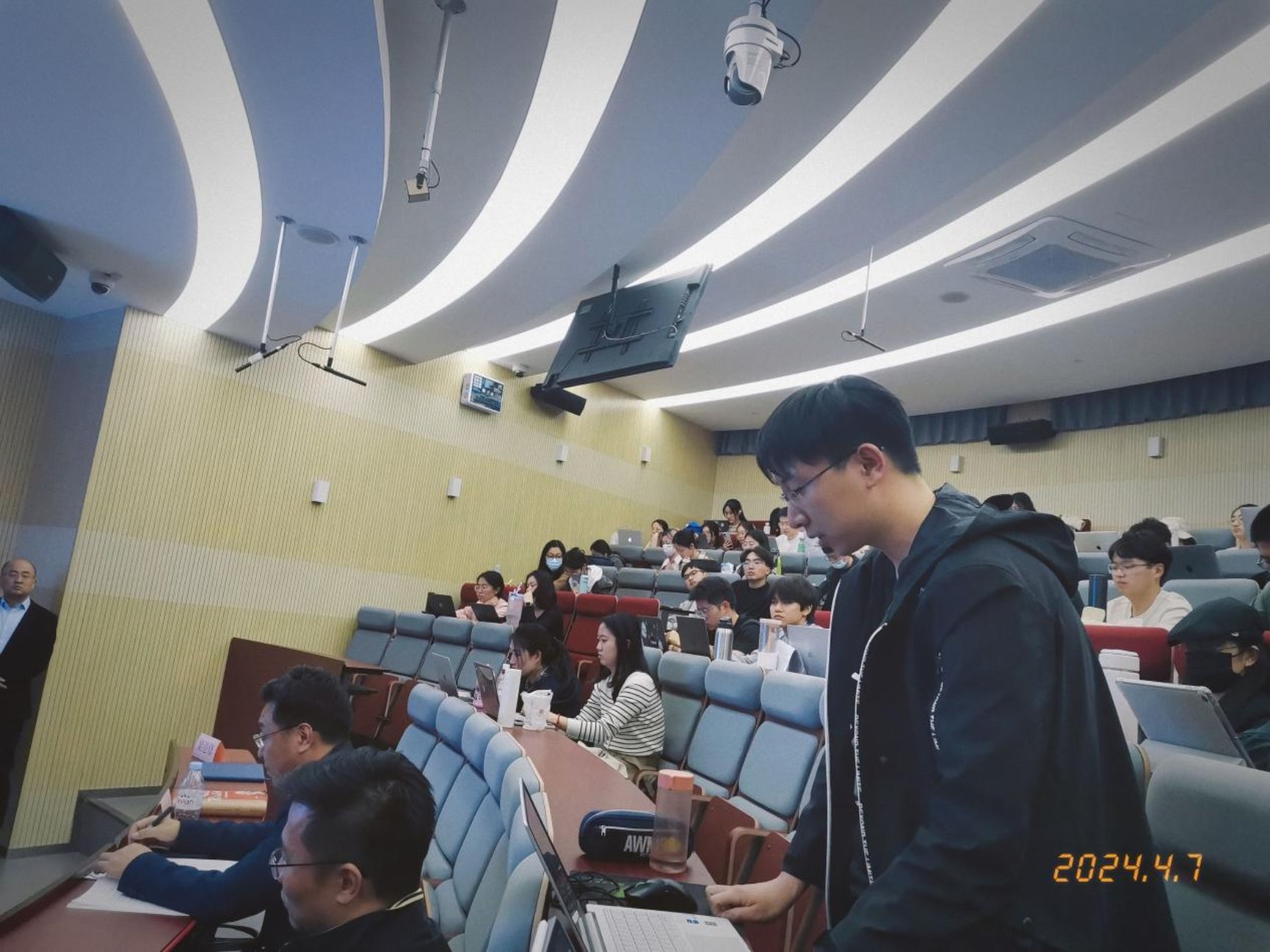
Following the Q&A, Dean Liang Yingxiu reiterated her heartfelt thanks to Deputy Director Luo Qingdong for his insightful lecture and encouraged the students to focus their attention on the nuanced aspects of judicial practice. Deputy Director Luo's presentation effectively bridged the gap between theory and application, offering the students a valuable educational experience that yielded commendable pedagogical outcomes. The Law School of Beijing Normal University is committed to fostering a deeper understanding of judicial practice among its students and to bolstering their practical skills by welcoming more experts from the field to share their expertise on campus in the future.
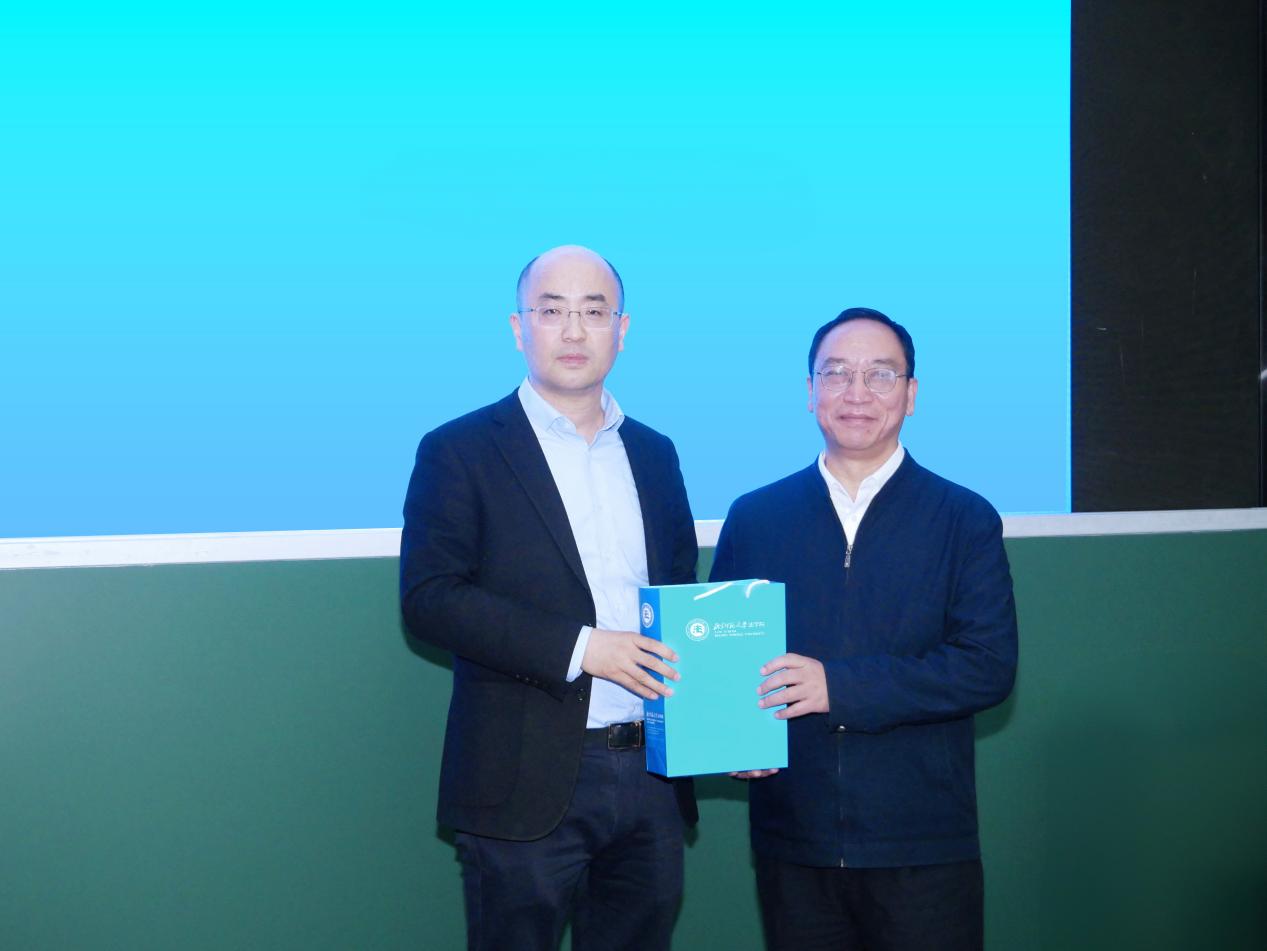
Finally, the lecture came to a successful conclusion amidst enthusiastic applause from students and faculty members.
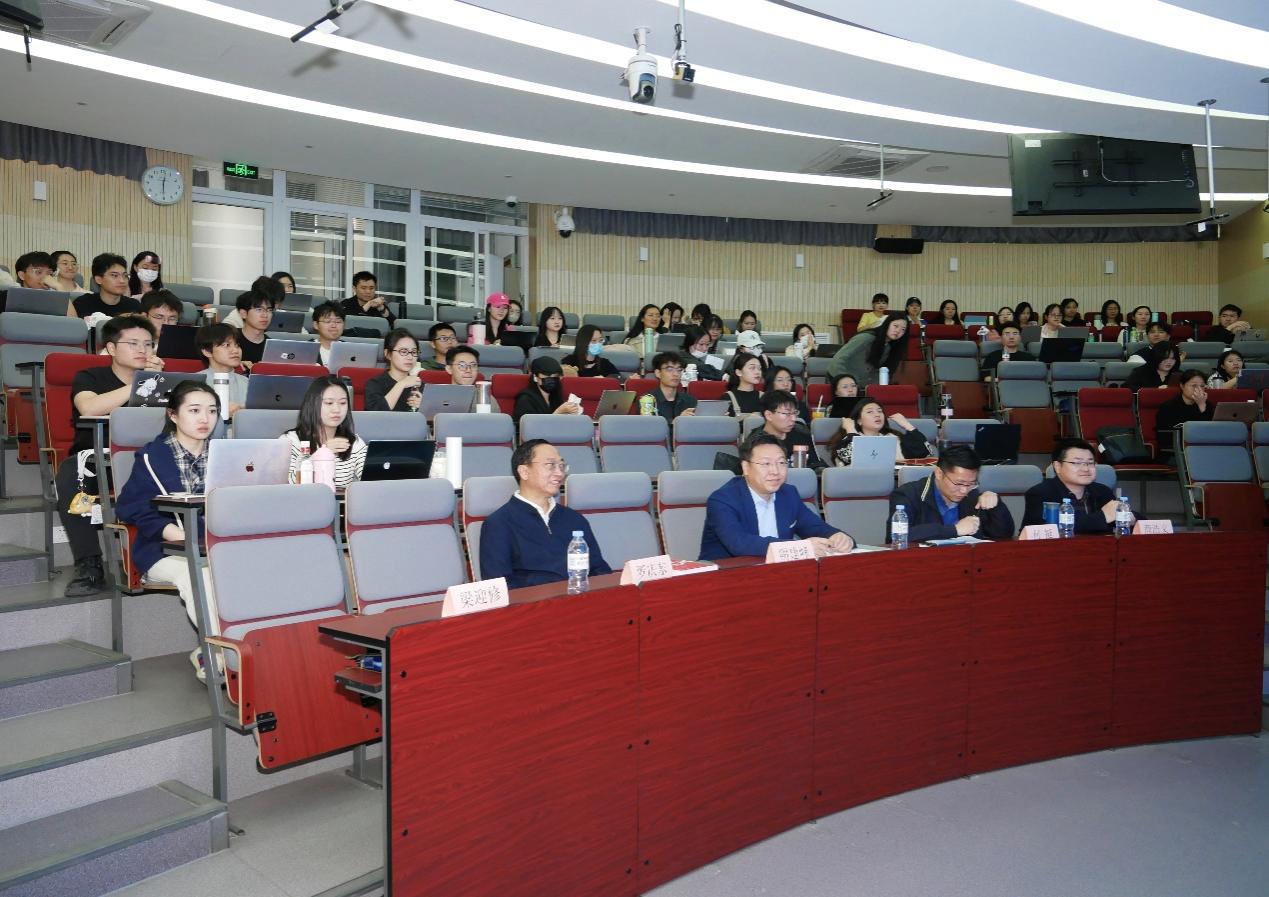
Image: Nie Yixiong, Sun Pengqing
Contributed by: Lou Ziyi, Sun Pengqing
Reviewed by: Shang Haowen
